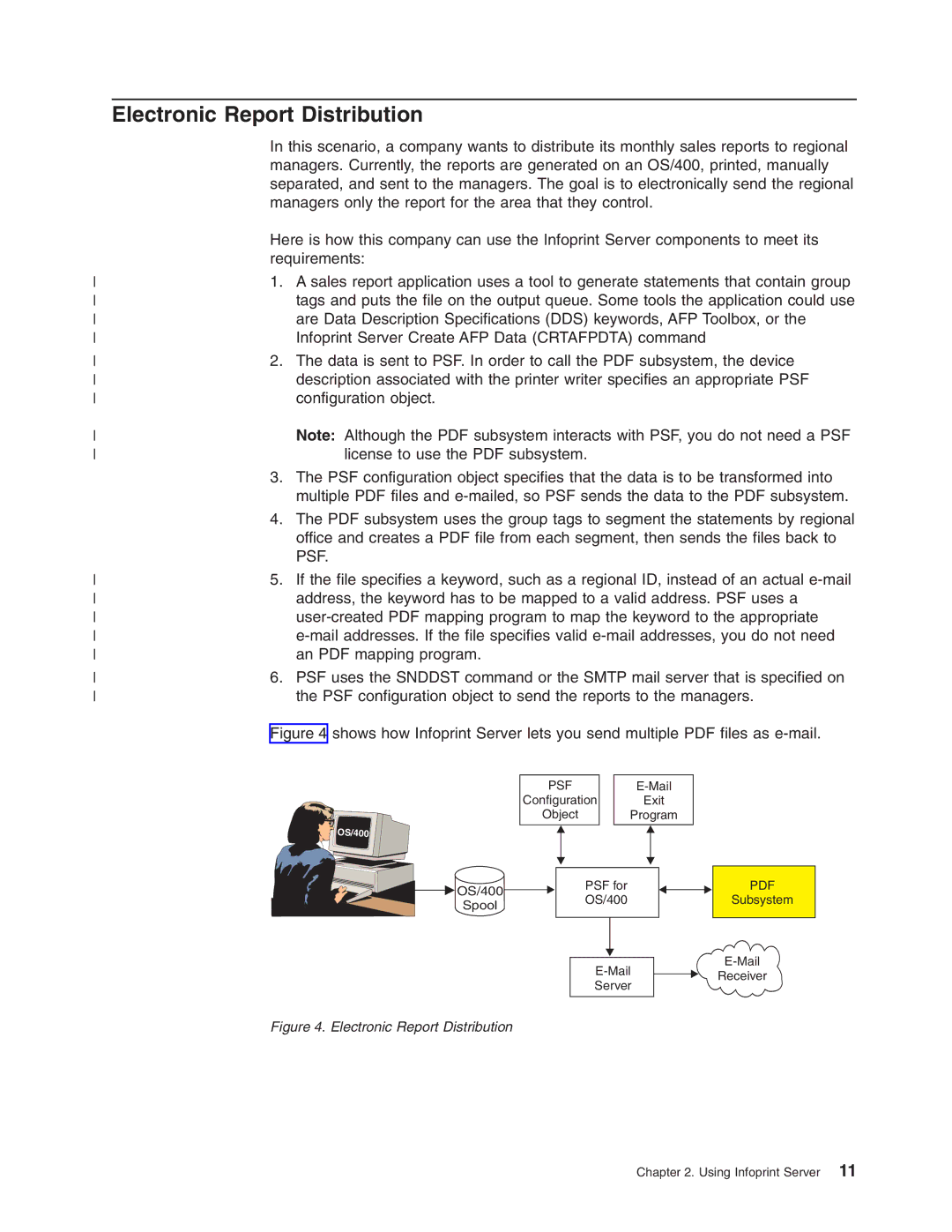
Electronic Report Distribution
In this scenario, a company wants to distribute its monthly sales reports to regional managers. Currently, the reports are generated on an OS/400, printed, manually separated, and sent to the managers. The goal is to electronically send the regional managers only the report for the area that they control.
Here is how this company can use the Infoprint Server components to meet its requirements:
1. | A sales report application uses a tool to generate statements that contain group | |
| tags and puts the file on the output queue. Some tools the application could use | |
| are Data Description Specifications (DDS) keywords, AFP Toolbox, or the | |
| Infoprint Server Create AFP Data (CRTAFPDTA) command | |
2. | The data is sent to PSF. In order to call the PDF subsystem, the device | |
| description associated with the printer writer specifies an appropriate PSF | |
| configuration object. | |
| Note: Although the PDF subsystem interacts with PSF, you do not need a PSF | |
| license to use the PDF subsystem. | |
| 3. | The PSF configuration object specifies that the data is to be transformed into |
|
| multiple PDF files and |
| 4. | The PDF subsystem uses the group tags to segment the statements by regional |
|
| office and creates a PDF file from each segment, then sends the files back to |
|
| PSF. |
5. | If the file specifies a keyword, such as a regional ID, instead of an actual | |
| address, the keyword has to be mapped to a valid address. PSF uses a | |
| ||
| ||
| an PDF mapping program. | |
6. | PSF uses the SNDDST command or the SMTP mail server that is specified on | |
| the PSF configuration object to send the reports to the managers. |
Figure 4 shows how Infoprint Server lets you send multiple PDF files as
PSF
Configuration
Object
Exit
Program
![]() OS/400
OS/400![]()
Spool
PSF for OS/400
Subsystem
Receiver
Figure 4. Electronic Report Distribution
Chapter 2. Using Infoprint Server 11
